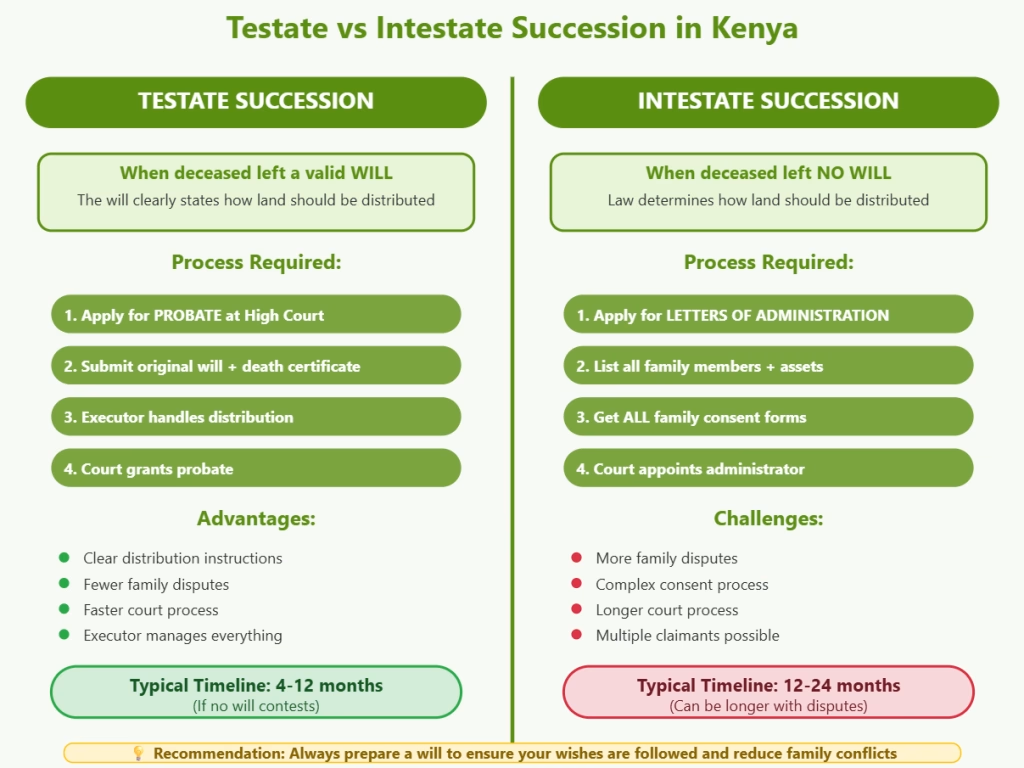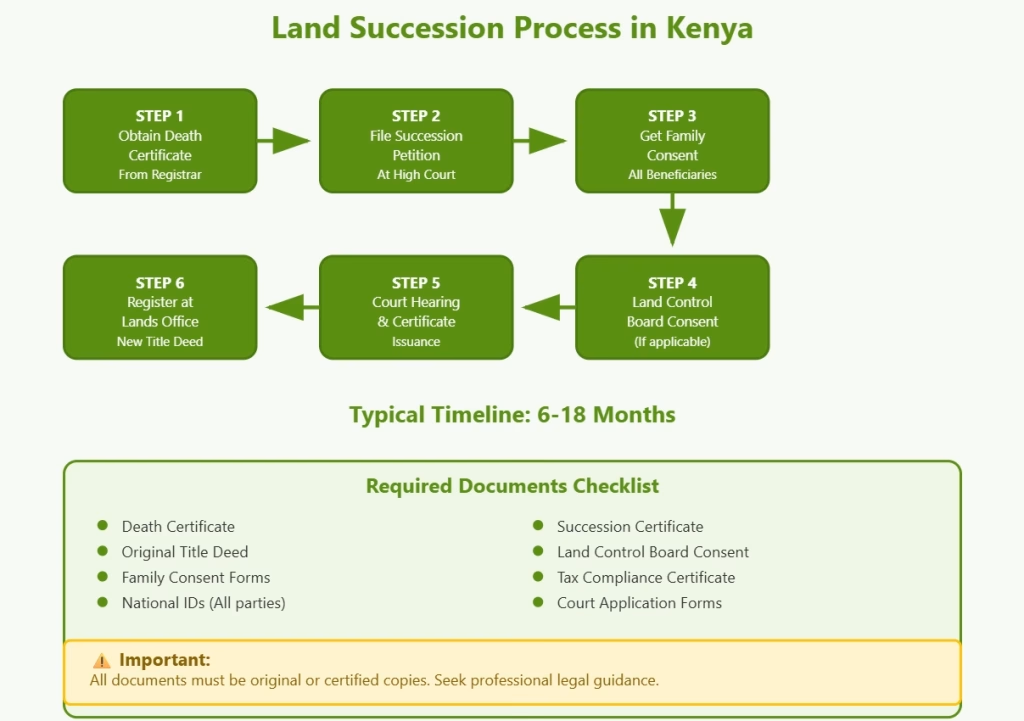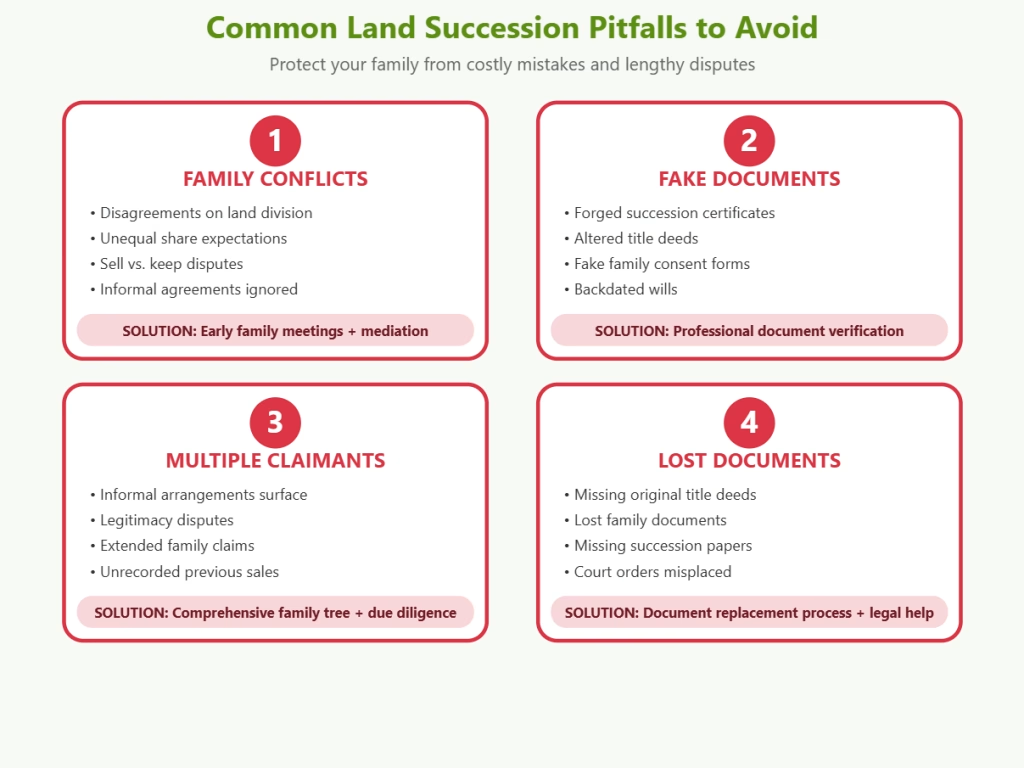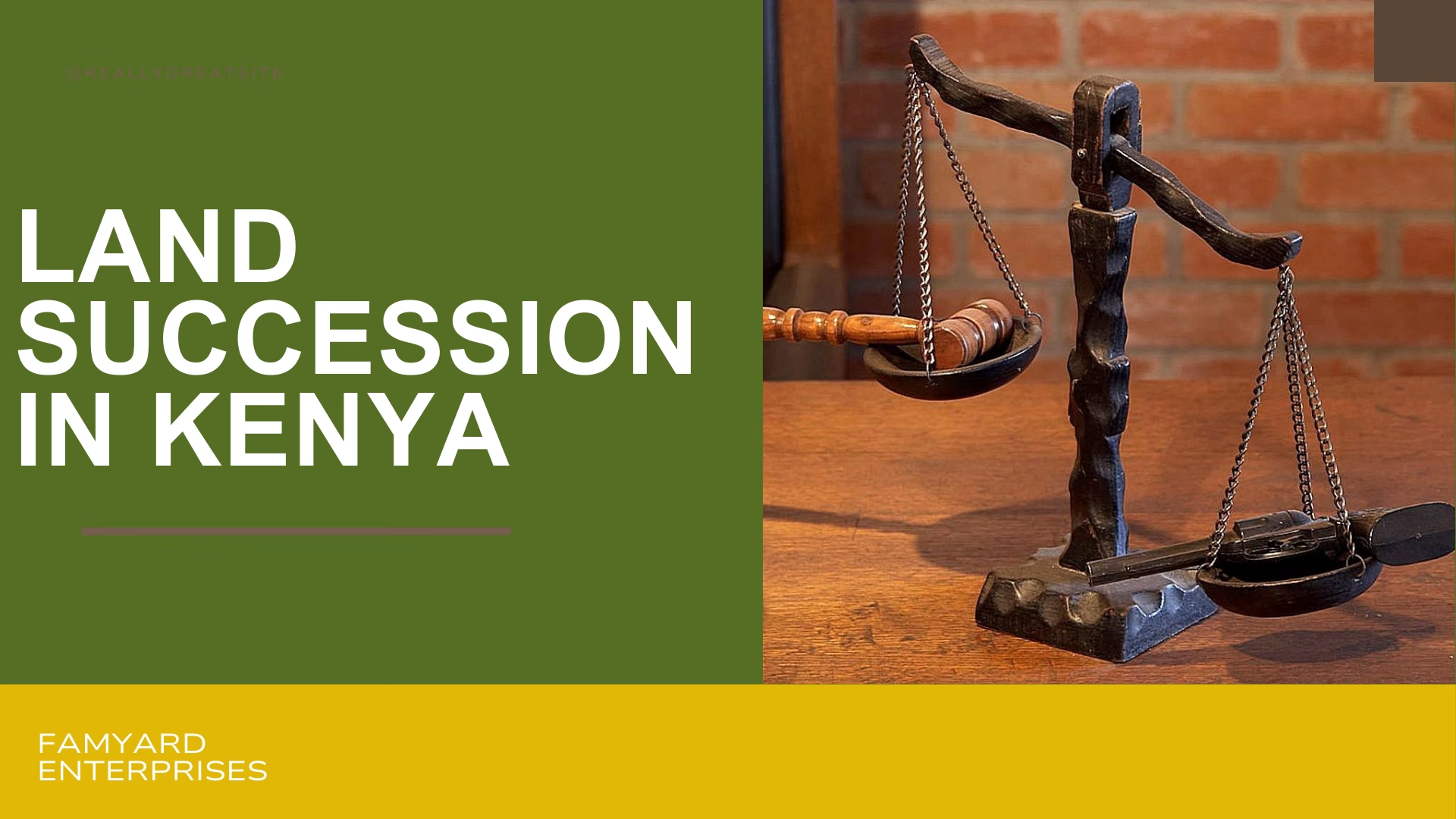Losing a loved one is never easy, but dealing with inherited land succession in Kenya can turn grief into a nightmare for many families. Every year, thousands of Kenyan families find themselves caught in complex legal battles over land succession, with cases dragging on for years in our courts.
Whether you’re a local Kenyan family dealing with a recent loss, a diaspora Kenyan trying to resolve succession from abroad, or someone who has inherited land but doesn’t know the proper steps to take, this comprehensive guide will walk you through everything you need to know about land succession in Kenya.
What Is Land Succession in Kenya?
Land succession in Kenya refers to the legal process of transferring ownership of land from a deceased person to their rightful heirs. This process is governed by the Succession Act (Cap 160) and the Land Registration Act of 2012.
Types of Succession
There are two main types of succession in Kenya:
Testate Succession
This occurs when the deceased left a valid will clearly stating how their land should be distributed. The will must be probated in court, and the executor named in the will handles the distribution process.
Intestate Succession
This happens when someone dies without leaving a will. In this case, the law determines how the land should be distributed among family members according to established hierarchy – spouse, children, parents, and siblings.

Common Succession Scenarios
Most families encounter succession issues in these situations:
- A parent dies without having divided their land among children
- Multiple family members claim ownership of the same piece of land
- The original title deed is lost or damaged
- Family members disagree on how to divide inherited property
- Diaspora family members want to claim their share remotely
Understanding these scenarios helps families prepare better and avoid lengthy legal battles that can tear families apart.
Legal Requirements for Transferring Inherited Land
The process of transferring inherited land in Kenya involves several legal steps that must be followed carefully. Here’s what you need to know:
Obtain a Death Certificate
Before any succession process can begin, you must obtain an official death certificate from the Registrar of Deaths. This document is required for all subsequent legal proceedings.
Apply for a Succession Certificate
The succession certificate is the most important document in the inheritance process. Here’s how to get one:
For Testate Succession:
- File a petition for probate at the High Court
- Submit the original will and death certificate
- Pay the required court fees
- Attend court hearings as scheduled
For Intestate Succession:
- File a petition for letters of administration
- Provide a list of all family members and their relationships to the deceased
- Submit an inventory of all assets including land
- Get consent from all beneficiaries
Obtain Family Consent
All family members who have a legal claim to the inheritance must give their written consent. This includes:
- Surviving spouse
- All children (including adopted children)
- Parents (if no spouse or children exist)
- Siblings (in specific circumstances)
Land Control Board Consent
For agricultural land, you must obtain consent from the relevant Land Control Board. This ensures that the land transfer complies with local land use regulations.
Registration at the Lands Office
Once you have all the necessary documents, visit the Ministry of Lands offices to:
- Complete the land transfer forms
- Pay the required stamp duty and registration fees
- Submit all supporting documents
- Receive your new title deed
Required Documents Checklist
- Death certificate
- Succession certificate or probate
- Original title deed (if available)
- Family consent forms
- Land Control Board consent
- National IDs of all parties
- Tax compliance certificates

Common Pitfalls and Disputes in Land Succession
Many families face serious challenges during the succession process. Understanding these common pitfalls can help you avoid costly mistakes:
Family Conflicts and Disagreements
The most common issue is family members disagreeing on how to divide the land. These disputes often arise when:
- Some family members feel they deserve a larger share
- There’s confusion about who has the right to inherit
- Family members have different ideas about selling vs. keeping the land
- Previous informal agreements weren’t properly documented
Fake or Fraudulent Documents
Unfortunately, land succession cases sometimes involve forged documents. Watch out for:
- Fake succession certificates
- Altered title deeds
- Forged family consent forms
- Backdated wills

Multiple Claimants
Sometimes, multiple parties claim ownership of the same land. This can happen when:
- The deceased had informal arrangements with different family members
- There are disputes about legitimate vs. illegitimate children
- Extended family members make unexpected claims
- Previous sales or transfers weren’t properly recorded
Delays and Court Backlogs
The succession process can take months or even years, especially if:
- All required documents aren’t submitted at once
- Family members can’t agree on the distribution
- Court schedules are backlogged
- There are competing claims to resolve
Lost or Missing Documents
Many families struggle when they can’t find:
- The original title deed
- Important family documents
- Previous succession certificates
- Court orders or judgments
Final Tips
Successfully navigating land succession in Kenya requires patience, proper documentation, and professional guidance. Here are our final recommendations:
- Start Early: Don’t wait until disputes arise. Begin the succession process as soon as possible after a loved one passes away.
- Keep Records: Maintain copies of all documents, court orders, and correspondence throughout the process.
- Seek Professional Help: Work with experienced legal professionals who understand Kenyan succession law and can guide you through the complexities.
- Communicate Openly: Keep all family members informed about the process and involve them in important decisions.
- Verify Everything: Always verify the authenticity of documents and claims before proceeding with any transactions.
Frequently Asked Questions
How do I get a succession certificate in Kenya?
File a petition at the High Court with the death certificate, asset inventory, and family consent forms. The court will issue a succession certificate after verifying all requirements and conducting hearings.
How long does succession take?
The succession process typically takes 6-18 months, depending on court schedules, document availability, and whether there are family disputes or competing claims to resolve.
Can you sell inherited land without title?
No, you cannot legally sell inherited land without a proper title deed. You must complete the succession process and obtain a new title deed before any sale.
What happens if a family member refuses to sign?
If a rightful heir refuses to give consent, you may need to file a court application to resolve the dispute. The court can order the transfer despite the refusal if valid grounds exist.
How can diaspora Kenyans handle succession?
Diaspora Kenyans can appoint a local representative through a power of attorney or work with legal experts who can handle the process on their behalf while keeping them updated remotely.
